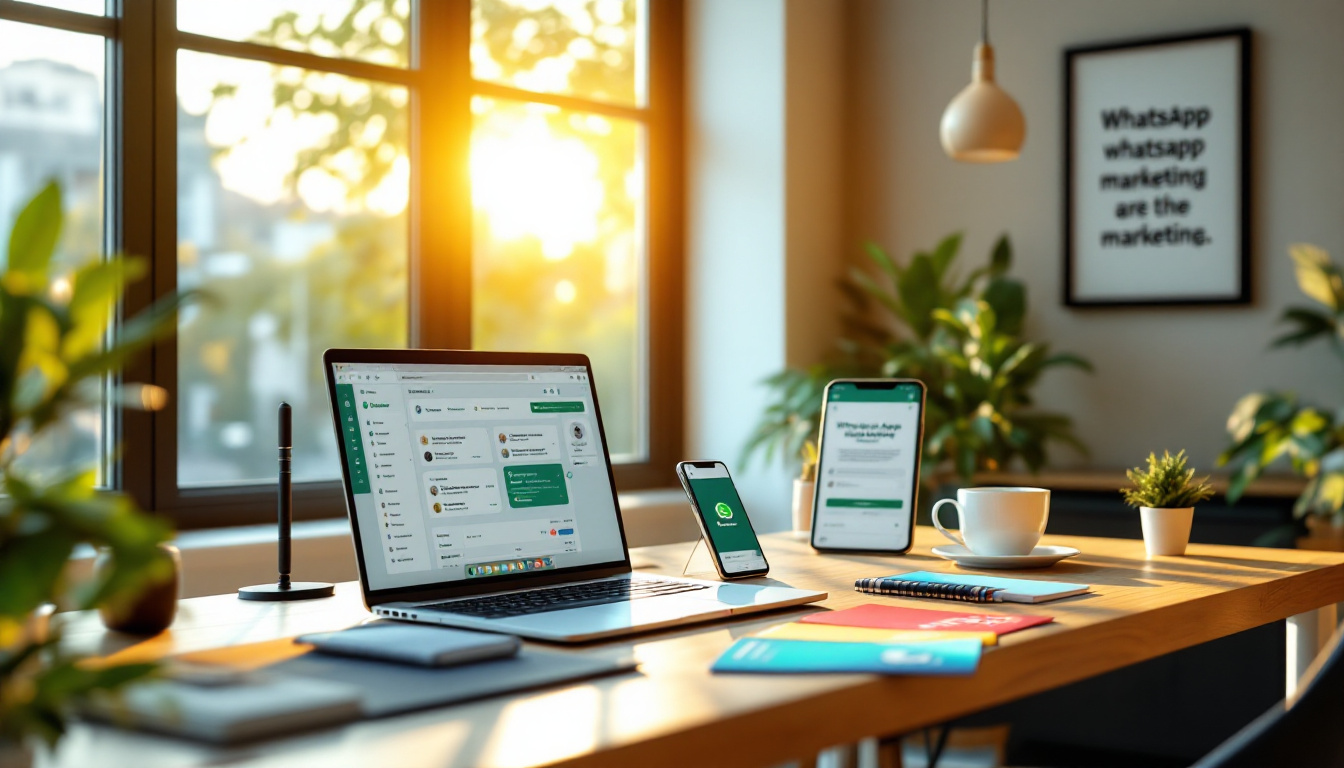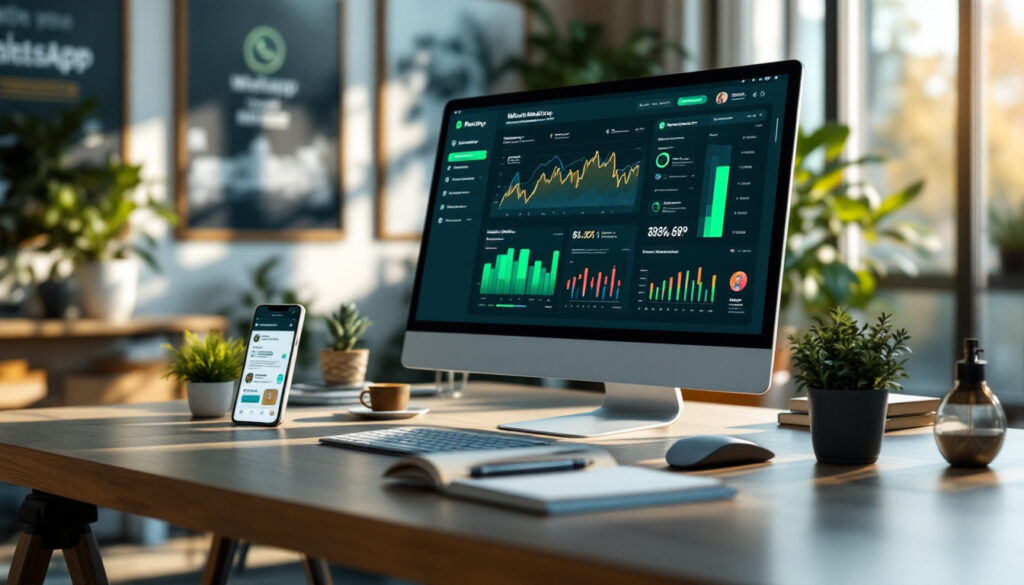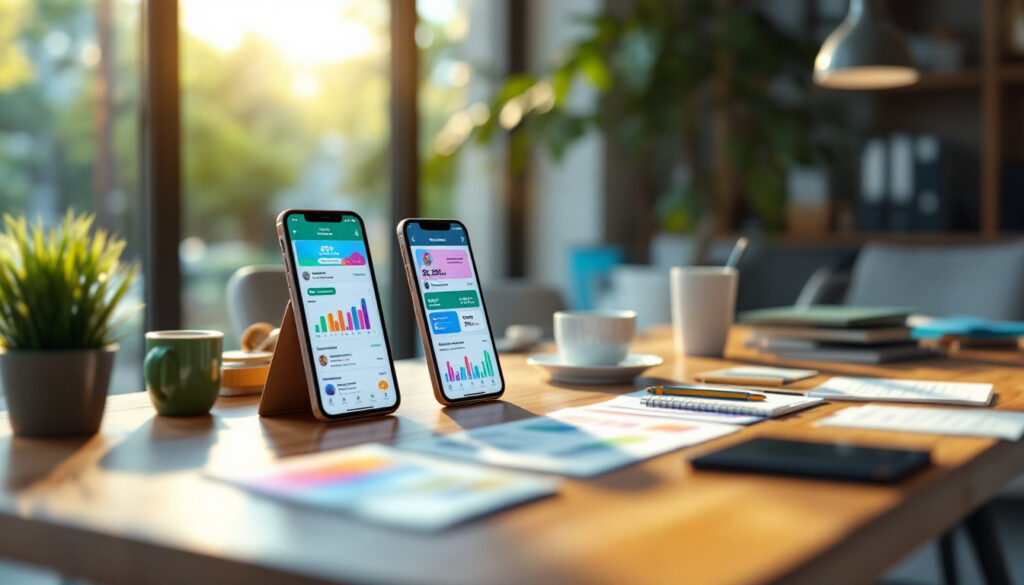
Connecting with customers has never been more important. By 2025, WhatsApp Marketing is set to redefine how businesses interact with their audience. With nearly instant communication, personalized messaging, and vast global reach, these tools are becoming key to enhancing customer engagement. Advancements in technology are transforming these tools to simplify tasks like automating responses, sending bulk updates, and tracking campaign success. Whether you’re managing small campaigns or large-scale marketing efforts, the right tools can help you stay ahead and make the most of this ever-growing platform. Now, let’s explore the top options that can power up your strategy.
Why WhatsApp Marketing is Crucial for Businesses in 2025

As consumer behavior evolves, businesses need platforms that help them engage directly, efficiently, and personally. WhatsApp, with its 2.7 billion global users, stands out as a critical tool for businesses to connect with their audience. But why is it particularly essential in 2025? Let’s break it down.
WhatsApp Marketing: An Overview
WhatsApp is no longer just a messaging app. It’s a business powerhouse. By 2025, it is estimated that 175 million people message businesses daily on WhatsApp. Its reach encompasses diverse demographics and geographies, making it an ideal tool for brands targeting both local and international markets. For instance, the app has achieved adoption rates exceeding 95% in countries like Brazil and India, broadening its commercial use cases.
With an open rate of 98%, WhatsApp campaigns drastically outperform email marketing (average open rates of 20-25%). This high engagement stems from its personal, real-time nature, allowing businesses to cut through digital noise and connect meaningfully. Industries ranging from e-commerce to travel have already embedded WhatsApp in their strategies. According to a WhatsApp statistics report for 2025, businesses using WhatsApp Chatbots are projected to save up to 2.6 billion hours annually, highlighting its efficiency.
For entrepreneurs and marketers, these trends translate into greater opportunities for customer retention, conversions, and overall ROI. You can read more about the transformative role of digital marketing in industries like graphic design over at our guide on digital marketing strategies.
Advantages of WhatsApp Marketing over Traditional Marketing
Why adopt WhatsApp Marketing instead of sticking to traditional methods like email or SMS? Here’s a breakdown of its key advantages:
- Cost-Effectiveness WhatsApp eliminates expenses on paper, delivery logistics, or high SMS fees. This is especially beneficial for small businesses looking to scale. Compared to traditional mediums, the app offers tools like WhatsApp Business API that enhance communication without skyrocketing costs.
- Personalized Messaging Features Unlike other platforms, WhatsApp enables highly personalized interactions. Using customer data, businesses can address individual needs, recommend products, send appointment reminders, and confirm deliveries—all with ease. Personalization establishes trust and fosters brand loyalty.
- Automation with Chatbots Automation is a game-changer in marketing, and WhatsApp’s chatbot feature integrates seamlessly. These bots can handle FAQs, assist with bookings, and even process payments—making customer support fast and frictionless. By 2025, the increased use of such automations is expected to revolutionize how businesses handle customer queries.
- Data-Driven Insights WhatsApp Marketing isn’t just about engagement; it’s about learning what works. Businesses can track metrics like message delivery rates, open rates, and customer response behaviors. These insights enable them to refine their strategies for better outcomes, much like how certain AI tools for marketers enhance precision in campaigns.
WhatsApp blends the immediacy and personalization of traditional face-to-face marketing with the scale of modern digital tools. With features that make communication easier and more effective, it’s clear why businesses are prioritizing WhatsApp Marketing over conventional approaches in 2025.
Criteria for Selecting the Best WhatsApp Marketing Tools

Choosing the right WhatsApp marketing tool can feel like navigating a crowded marketplace with endless options. However, with a clear plan and checklist, your decision becomes much simpler. From automation and integrations to compliance, here’s how to identify what works best for your business.
Essential Features to Look For
The right WhatsApp marketing tool should offer specific features that fit your strategy and business goals. Here are the must-have functions to ensure you’re equipped for success:
- Automated Messaging Automation is the heart of WhatsApp marketing. Look for tools that allow you to send pre-set messages like welcome texts, follow-ups, and campaign updates. This feature saves time and provides consistent communication, helping your team focus on strategic priorities.
- API Integration Seamless integration with existing business systems is crucial. Whether it’s your CRM software or e-commerce platform, tools offering API functionalities enable a smoother workflow. For instance, syncing customer interactions into one dashboard ensures better organization and fewer missed opportunities.
- CRM Capabilities A robust CRM (Customer Relationship Management) system integration allows businesses to maintain meaningful relationships with their audience. From categorizing leads to tracking every interaction, these insights help you deliver personalized customer experiences, often improving brand trust and loyalty.
- Advanced Analytics Data-driven marketing is more important than ever. Tools with in-depth analytics help you monitor message delivery rates, open rates, and click-through rates. Using these insights, you can fine-tune your campaigns to enhance their effectiveness. Businesses can transform their data strategies by integrating AI-powered tools, similar to concepts explained in this post on AI tools for digital marketers.
- Customer Segmentation Segmentation helps target specific customer groups based on behaviors, preferences, and location. This granular targeting enables businesses to run more personalized campaigns, ultimately driving better engagement and conversions.
- Bulk Messaging with Personalization Ensure the tool offers both bulk messaging for scale and personalization features for individual client connections. Striking this balance can significantly increase your open and response rates without losing the human touch.
For more inspiration on optimizing these features, check out this detailed overview of advanced marketing tools for businesses.
Compliance and Legal Considerations
While features are necessary, compliance is non-negotiable when it comes to WhatsApp marketing. Missteps can lead to penalties or even getting banned from the platform, so staying within legal boundaries is crucial.
- Adherence to GDPR and Data Protection Laws If you’re targeting audiences in regions like the EU, General Data Protection Regulation (GDPR) compliance is mandatory. The tool you choose should store data securely and collect only relevant, legally permissible information.
- User Consent for Messaging WhatsApp requires explicit user consent for businesses to deliver messages. Look for a tool that helps you manage opt-ins, whether through website forms, app notifications, or other user-friendly methods.
- Aligning with WhatsApp Business Terms All tools should operate in line with WhatsApp’s official Business Policy. This ensures that your account and campaigns comply with platform guidelines to avoid service interruptions.
By combining powerful features with strong compliance measures, you can ensure smooth operations and sustainable growth. For additional insights about effective marketing platforms and compliance, explore this ultimate WhatsApp marketing guide.
Top WhatsApp Marketing Tools to Watch in 2025

With WhatsApp solidifying its position as a must-have business communication platform, businesses are increasingly relying on specialized tools to enhance their marketing efforts. These tools not only simplify customer communication but also help drive campaigns for better engagement and ROI. Whether you’re managing a small shop or a large enterprise, there’s a solution tailored to your needs. Below are some of the best WhatsApp marketing tools worth exploring in 2025.
Wati: Real-Time Customer Interaction and CRM Integration
If you’re looking for a streamlined solution to interact with customers in real-time, Wati stands out. It is designed with small to medium businesses in mind, offering seamless customer interaction through WhatsApp. One of Wati’s biggest advantages is its CRM integration, allowing businesses to track every customer interaction across various channels.
Wati also supports automated messaging and chatbots, making it easier to provide consistent customer support without overwhelming your team. For businesses looking to connect multiple sales agents under one roof while maintaining professionalism, Wati ensures smooth communication channels.
Learn more about incorporating effective CRM tools into your digital strategy over in our guide on digital marketing strategies.
Twilio WhatsApp API: Enterprise-Grade Scalability
Twilio’s WhatsApp API has long been trusted by large enterprises that demand scalability and robust technical capabilities. Whether you want to send transactional updates or marketing campaigns to millions of users, Twilio provides the infrastructure to do so without breaking a sweat.
One of the biggest draws? Twilio’s integration flexibility. From e-commerce platforms to CRMs like Salesforce, this API can fit into virtually any workflow. Its developer-friendly design ensures IT teams can deploy custom solutions tailored to business-specific requirements. If your organization operates on a global scale, Twilio handles localization with ease.
You can read more about the best strategies for using WhatsApp on an enterprise-level in this external guide.
AiSensy: Affordable Automation for SMEs
Not all businesses have a giant marketing budget—here’s where AiSensy shines. Tailored specifically for small and medium enterprises (SMEs), AiSensy offers affordable pricing without compromising on essential marketing functionality. You can automate response templates, manage bulk campaigns, and track user interactions, making it a one-stop platform for WhatsApp marketing.
Its intuitive dashboard is easy to navigate, simplifying tasks like sending notifications, collecting feedback, or updating users on new launches. AiSensy also prioritizes data insights, giving small businesses the ability to refine their strategies using metrics like open rates.
Explore more tools that empower SMEs to succeed in marketing on this comprehensive software overview.
Zoko: E-Commerce Integrations and Targeted Campaigns
For businesses in the e-commerce space, Zoko is your go-to WhatsApp marketing tool. It offers excellent integration capabilities with platforms like Shopify, WooCommerce, and Magento, making it a favorite among online store owners. With Zoko, you can send targeted campaigns based on customer purchase history, abandoned carts, or browsing behavior.
One standout feature is its ability to run payment processes directly within WhatsApp, eliminating friction for customers ready to make a purchase. Its broadcasting and segmentation functionalities also allow brands to create hyper-specific campaigns that get users to engage and convert faster.
Curious about effective e-commerce marketing strategies? Here’s a detailed guide to marketing software examples and use cases.
Respond.io: Multi-Channel Support and Analytics Dashboard
Looking for a tool to centralize your customer communication channels? Respond.io is an excellent solution offering multi-channel support, integrating WhatsApp, Facebook Messenger, Instagram, and more into one easy-to-use dashboard. For businesses juggling multiple social platforms, this significantly improves workflow efficiency.
What also sets Respond.io apart is its analytics dashboard. You can track how customers interact across different touchpoints, helping you make better data-driven decisions. Whether it’s measuring response time, tracking open rates, or monitoring team performance, Respond.io ensures that businesses never lose sight of what works.
For a tech-driven exploration of this tool, check out this blog on marketing tools tailored for 2025.
By identifying the features that align with your business model, you can make the most of these tools to deliver effective WhatsApp marketing campaigns in 2025.
Case Studies: Successful WhatsApp Marketing Campaigns

Exploring the practical applications of WhatsApp Marketing reveals how real businesses unlock its potential for growth. From improving customer engagement to achieving significant ROI, these case studies showcase the tangible outcomes that businesses can achieve. Let’s dive into two examples of companies that effectively leveraged WhatsApp to transform their operations.
E-commerce Success Story: How Zoko Improved Abandoned Cart Recovery Rates
For e-commerce businesses, cart abandonment is an all-too-common challenge. One online retailer partnered with Zoko, a WhatsApp Marketing tool tailored for e-commerce operations, to tackle this issue head-on. Through Zoko’s advanced automation capabilities, the retailer implemented a targeted abandoned cart recovery campaign using WhatsApp.
Here’s how they did it:
- Personalized Follow-Ups Using Zoko, the retailer crafted messages tailored to each customer’s browsing and cart activity. Customers received gentle reminders about their incomplete purchases, including product thumbnails, pricing, and a direct link back to their cart.
- Timely Automation By deploying automated reminders 30 minutes, 24 hours, and 72 hours after cart abandonment, the retailer ensured that their messaging stayed relevant without overwhelming the customer.
- Seamless Payment Integration With Zoko’s payment options embedded directly within WhatsApp chats, customers could complete their purchases in just a few clicks, removing barriers often associated with traditional checkout processes.
The results were stunning. Over the course of three months, the retailer saw a 25% increase in recovered carts—a significant boost to their bottom line. For more on how tools like Zoko help businesses thrive, check out this case studies page.
SME Growth Through AiSensy: Scaling Customer Support and Conversions
Small and medium enterprises (SMEs) often struggle to balance limited resources with the need to efficiently scale their operations. One such SME turned to AiSensy, an affordable WhatsApp marketing platform, to solve this issue. The business was facing lagging customer support times and low lead-to-conversion rates.
Here’s the strategy they used:
- Automated Customer Support AiSensy’s AI-powered chatbots were deployed to handle FAQs, order tracking, and simple inquiries. This freed up human agents to focus on complex customer interactions, slashing response times by 40%.
- Lead Nurturing through Personalized Campaigns Every potential customer engaging with the business through WhatsApp was segmented based on their interactions. AiSensy automated personalized follow-ups with discount offers and service reminders, increasing conversion rates.
- Effortless User Interaction Customers valued the simplicity of WhatsApp for communication. For instance, AiSensy integrated automated appointment confirmations and feedback collections—eliminating the back-and-forth typically seen with email or phone calls.
In just six months, this SME experienced a 30% increase in customer conversions and a marked improvement in overall customer satisfaction. Their story highlights how automation tools like AiSensy can supercharge customer relationships. Dive deeper into SME-focused WhatsApp marketing strategies on this insightful blog.
These real-world applications underline WhatsApp’s versatility and effectiveness in addressing different business challenges. Whether it’s tackling abandoned carts or enhancing customer support, the right tools make all the difference.
Best Practices for Implementing WhatsApp Marketing

Implementing WhatsApp marketing effectively requires a strategic approach that prioritizes personalized communication, consistent engagement, and measurable outcomes. Businesses need to harness the platform’s potential while delivering meaningful value to their audiences. Here’s how you can refine your WhatsApp marketing strategy.
Personalized Messaging and Audience Segmentation
Generic messaging doesn’t work anymore. Your customers expect communication that feels personal and relevant. WhatsApp makes it easier to personalize the experience through segmentation.
Segmentation involves categorizing your audience based on variables like age, location, purchasing behavior, or even interaction history. Once segmented, you can craft messages tailored to each group.
For example:
- Existing Customers: Share upcoming product updates or loyalty rewards.
- New Leads: Send welcome messages and introductory offers to hook their attention.
- Cart Abandoners: Use gentle reminders to entice users back to their pending purchases.
Need a practical tip? Align your WhatsApp campaign messages with customer preferences. Personalization builds trust and fosters loyalty. In fact, personalized messages are known to boost customer retention rates significantly. Find out how businesses build successful strategies with tools like WhatsApp to streamline personalization in this resourceful guide.
Automation for Consistent Engagement
Keeping your audience engaged 24/7 is difficult without some level of automation. That’s where WhatsApp features like quick replies, chatbots, and broadcast lists come into play.
Automation ensures you stay connected without overburdening your team. Here’s how to use it effectively:
- Quick Replies: Pre-set responses save time and standardize communication for FAQs like opening times or service details.
- Chatbots: Guide users through product catalogs, assist with purchases, or address common concerns.
- Broadcast Lists: Distribute campaign updates, product launches, or limited-time offers to multiple users while maintaining privacy.
By reducing response times and ensuring round-the-clock availability, automation empowers businesses to stay top-of-mind with customers. For a deeper dive into creating consistent engagement via automation, visit this expert-led overview.
Measuring Campaign Effectiveness
Metrics matter. Tracking performance lets you identify what’s working and what needs improvement. WhatsApp analytics allow marketers to measure campaign impact in real-time.
Key performance indicators (KPIs) to monitor include:
- Open Rates: Understand how many people are actually reading your messages.
- Click-Through Rates (CTR): Gauge customer interest in your offers or product links.
- Response Times: Measure customer satisfaction by tracking how quickly issues are addressed.
- Conversion Rates: Assess how well your campaigns are driving sales or achieving specific goals.
Integrating analytics insights into your strategy sharpens your focus. For marketers, this means making data-driven decisions to refine funnels or assess outreach effectiveness. More on this is highlighted in this comprehensive article.
When implementing WhatsApp marketing, combining personalization with automation and analytics ensures your campaigns achieve maximum impact.
Conclusion
WhatsApp Marketing in 2025 opens a door to boundless opportunities for businesses to engage with their customers in meaningful and efficient ways. The right tools can simplify automation, enhance personalization, and provide actionable insights, helping your business stay competitive.
By integrating WhatsApp Marketing into your strategy, you’re not just adapting to a trend—you’re embracing what’s quickly becoming an essential component of digital engagement. For businesses eager to step forward, exploring resources like AI-driven digital marketing strategies for small businesses can provide additional insights into leveraging emerging tools effectively.
Now is the time to prioritize customer-centric strategies and technologies that will shape the future of communication and marketing. Start today, and position your business for success in 2025.

![Digital Security Tips When Working With a Digital Marketing Agency [2025 Guide]](https://clickyowl.com/wp-content/uploads/2025/04/digital-marketing-cybersecurity-expert-workspace-300x171.jpg)



